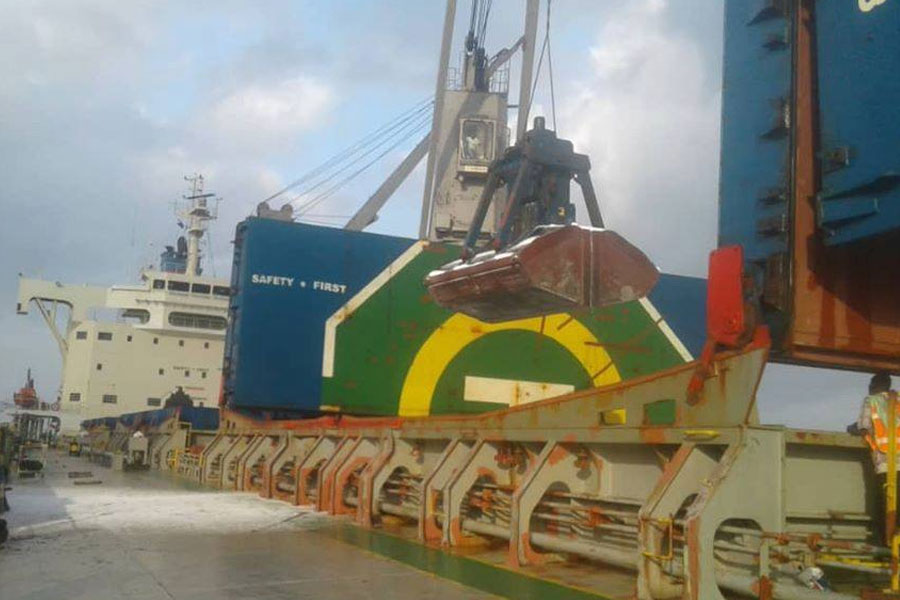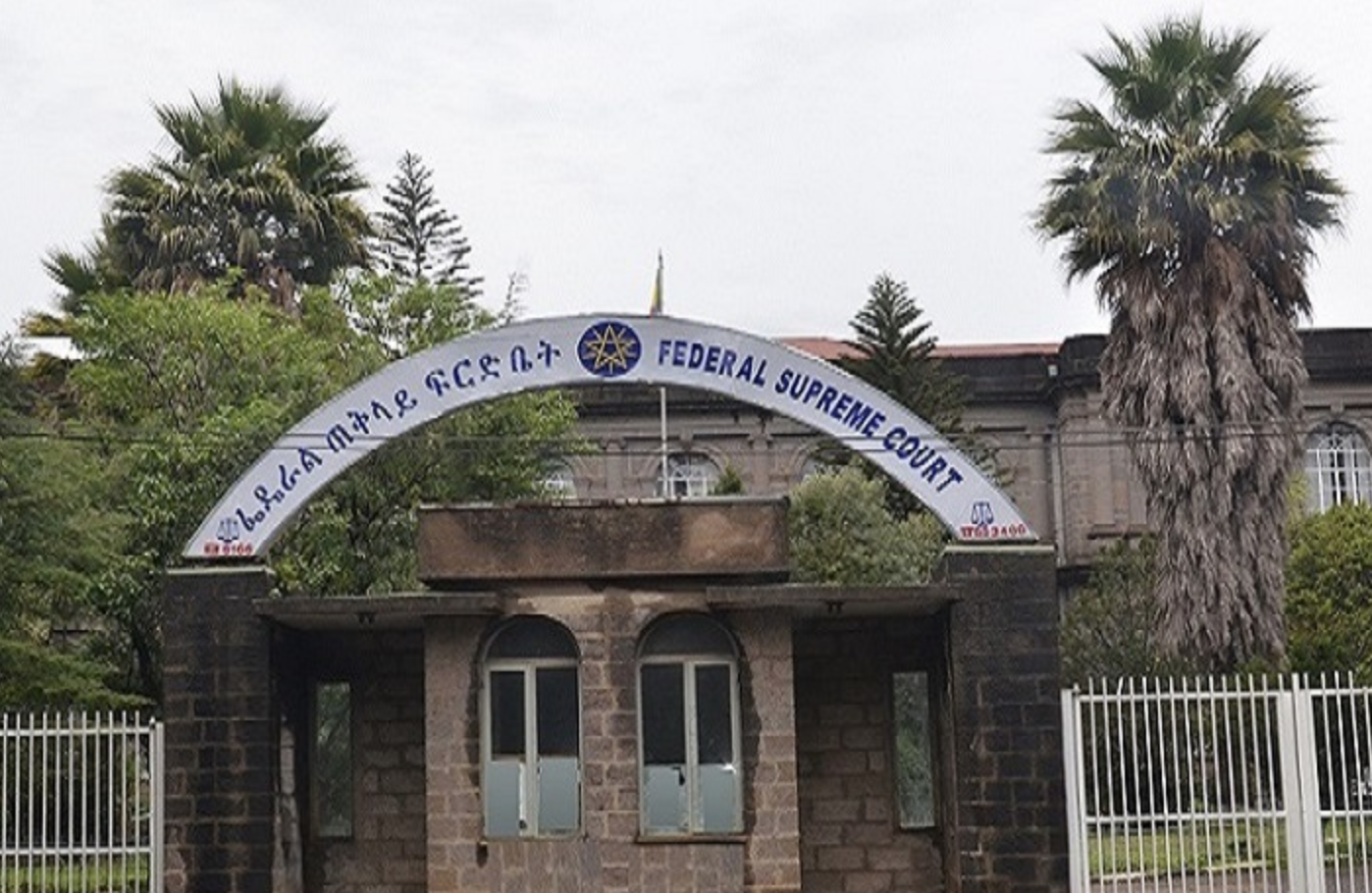
Feb 16 , 2019.
This year, 2019, will be defined by global economic factors of slowdowns and trade wars in major markets in the US, EU and China. The US Federal Reserve will be pressured to increase interest rates to fend off inflation fears fueled by failing prices of oil and commodities. The possibilities of a strong dollar regime will be most compelling.
How do economies - big and small alike - reposition themselves to come ahead of this mega trend in the global economic system?
Restoring a manageable balance of payments will be a challenge to policymakers in charge of national economies, including Ethiopia. For decades now, many have been decrying the distorted trade balance that the Ethiopian economy sustains. For a nation that imports about five times as much as it exports, the challenge of the external sector has been singled out as the most severe structural flaw that contributes to the macroeconomic malaise of foreign currency crunches and inflation.
Ethiopia is hardly alone in this situation. Assuming the risk of using the wrong comparables, the United States, the world’s largest importer, grapples with enormous trade deficits. Indeed, while the trade imbalance in the North American country stood at 43 billion dollars as of last November, it is not an exaggerated figure when measured against the relative wealth of the nation, which registered 19.39 trillion dollars in gross domestic product (GDP) in 2017.
In contrast, Ethiopia holds a 12-billion-dollar average deficit in the external sector which is about 15pc of the GDP recorded in the same year.
The United States as well does not have to worry about foreign reserves, because it owns the very currency that is most widely used in global trade. It does not mean, however, that the Federal Reserve can print money whenever the governors of the bank fancy, for there is an inflationary pressure to worry about. But it makes it far easier to deal with trade deficits when the country controls the supply of currency the world depends on.
This is because the post-war Bretton Woods arrangements institutionalised the role of the US dollar as the primary reserve currency, according to Carmen Reinhart, a professor of International Financial System at Harvard’s Kennedy School. She stressed that as the share of America’s GDP to the world has halved in the half-century between 1965 and 2015, the number of countries that use the dollar as an anchor currency has more than doubled.
It will also remain one of the core reasons that the United States continues to play a leading role as a multi-polar world emerges, an argument that lends itself comfortably to the suggestion that it is rarely a bad idea to have reserves denominated in dollars. There is now even more reason to believe that the US currency is getting stronger, making it a worthy investment for policymakers to consider as they attempt to improve their balance sheets.
The strengthening of the currency is not to the liking of President Donald Trump’s administration, because it would hurt exports and encourage imports. For a period in 2017, it seemed like a weak dollar could be the case in the future.
But beginning in March last year the dollar, measured against the Pound and the Euro, has been gaining in strength. Economic policy pundits blame Trump himself for this. Tax cuts, deregulation and increases in federal spending have boosted the US economy at a time when most large economies, such as China, are slowing down. It has made the US a safer place for investments, and the dollar a safer bet.
The Federal Reserve has compounded the matter, having continued with an increase in interest rates that have been constant for most of the decade. Just in the past three years, interest rates have risen fivefold to 2.5pc. This rise in the value of the dollar, as Reinhart stressed, is just a reinforcement of a trend that has been evident for decades.
There have been fluctuations, but the general movement of the value of the dollar has been up.
This has significant implications for countries across the world, including Ethiopia. It is not only a matter of the Birr being pegged to the dollar, it also has to do with the fact that trade is carried out in major foreign currencies, each of which gains or loses in value regularly. Unless policymakers attempt to influence what currencies flow in and out, opportunities to address the macroeconomic conundrum could be lost.
The continuing strengthening of the dollar since 2008 should signal to policymakers that it is essential to invest in that particular currency early on. This can be accomplished by making sure that inflows of foreign currencies are primarily denominated in dollars while outflows should be mostly in other currencies, such as the euro.
Ethiopia should try to avoid dollar-denominated loans when it comes to sources where it can bargain loan terms. This particular point becomes more pressing when seen against the fact that 60pc of Ethiopia`s debt to foreign creditors is in dollars and 31.5pc in the IMF’s special drawing rights (SDR).
Ethiopia stands a better chance of doing this at a time when the United States is looking to assert its economic leverage in the continent in response to rising Chinese investments. The passing of the Better Utilisation of Investments Leading to Development (BUILD) Act, which created an agency with double the budget to support development financing outside the United States, is a good indication. It offers an opportunity for countries such as Ethiopia that are trying to attract foreign direct investment and the government ought to make good use of it.
The administration of Prime Minister Abiy Ahmed (PhD) should open up the service sector to businesses from the United States, which has a service-led economy, to be better engaged. Allowing foreign nationals to invest a limited amount of equity in the financial sector could be a positive gesture to start with.
Liberalisation of the service sector in broader terms is beneficial on its own as it introduces competition, and facilitates the synergy between the industrial and agriculture sectors. It can also be a means of meeting the Americans half way. The BUILD Act was passed to encourage the American private sector to engage in developing economies. But they can seldom do this, and bring the dollars, if there are regulatory obstacles on the home front.
Nonetheless, these all should be considered as part components of what should be a grand design for a new and fresh economic order. An order that will help Ethiopia`s economy wither the storm ahead.
PUBLISHED ON
Feb 16,2019 [ VOL
19 , NO
981]

Verbatim | Jun 29,2024

My Opinion | Jul 29,2023

Radar | May 28,2022

Fortune News | Apr 10,2021

Covid-19 | Apr 01,2020

Radar | Aug 21,2021

Radar | Jan 11,2020

Viewpoints | Apr 15,2023

Radar | Dec 01,2024

Viewpoints | Jan 13,2024

Photo Gallery | 180521 Views | May 06,2019

Photo Gallery | 170714 Views | Apr 26,2019

Photo Gallery | 161784 Views | Oct 06,2021

My Opinion | 137289 Views | Aug 14,2021

Dec 22 , 2024 . By TIZITA SHEWAFERAW
Charged with transforming colossal state-owned enterprises into modern and competitiv...

Aug 18 , 2024 . By AKSAH ITALO
Although predictable Yonas Zerihun's job in the ride-hailing service is not immune to...

Jul 28 , 2024 . By TIZITA SHEWAFERAW
Unhabitual, perhaps too many, Samuel Gebreyohannes, 38, used to occasionally enjoy a couple of beers at breakfast. However, he recently swit...

Jul 13 , 2024 . By AKSAH ITALO
Investors who rely on tractors, trucks, and field vehicles for commuting, transporting commodities, and f...

Nov 2 , 2025
The National Bank of Ethiopia (NBE) has scrapped the credit-growth ceiling that had s...

Nov 2 , 2025 . By SURAFEL MULUGETA
The burgeoning data mining industry is struggling with mounting concerns following th...

Nov 2 , 2025 . By YITBAREK GETACHEW
Berhan Bank has chosen a different route in its pursuit of a new headquarters, opting for a transitional building instea...

Nov 2 , 2025 . By BEZAWIT HULUAGER
Nib International Bank S.C. has found itself at the epicentre of a severe governance...